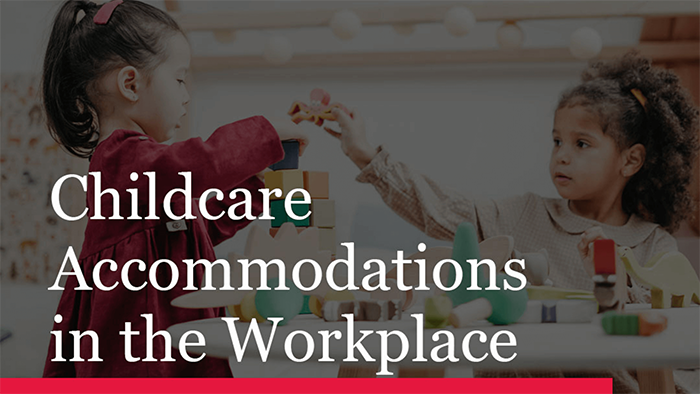Casey Stern, a former Turner Sports anchor, sued the network and Warner Media, accusing them of failing to accommodate his child care needs. Stern’s ex-wife and her boyfriend have been indicted on 15 felony counts for abusing his children. Stern’s complaint, filed on May 11, 2021, in the federal courts in George, states that Warner Media and the Network refused to accommodate his need to care for his children, indicating that he, as a male, was not permitted to put the care and recovery of his children above his job the way a woman might have been accommodated. The Complaint alleges that this Network and Warner Media and other brands under that umbrella have created toxic work environments which violate Title VII of the Civil Rights Act and the Americans With Disabilities Act.
Title VII of the Civil Rights Act and the NJ LAD prohibit discrimination, i.e. disparate treatment, amongst employees of different genders. To prevail, Mr. Stern would need to prove that the accommodations he requested would have been offered to him if he were female. Understandably, Mr. Stern was dealing with an extremely traumatic situation and asserts that Warner Media was not sympathetic to his child care obligations. He claims that he was slowly phased out of his job responsibilities, ultimately being fired in the Fall of 2020. In a statement you don’t hear too often, Stern’s complaint asserts that Warner Media discriminated against him because he is a man with childcare responsibilities.
This is an interesting fact pattern and begs the question: Was the company’s decision motivated by gender bias (i.e. that a man was not allowed to tend to child care obligations whereas a woman would have been so permitted) or are no employee’s child care obligations accommodated. The analysis will involve looking at his comparators, i.e. similarly situated employees with the same/similar job responsibilities to see if women with children would have been treated differently. This could be difficult considering the relative lack of female comparators in sports broadcasting, either inside Warner Media or at other employers.
Despite this case being fashioned as one of gender bias and violation of the ADA, the crux of the issue is whether a company can be required to accommodate an employee’s child care needs.
Considering the tragic circumstances of this case, the refusal to accommodate his childcare needs was also fashioned as an ADA claim. The ADA defines a covered individual as the employee who, with or without the accommodations, can perform the essential functions of their job. While the statute provides for flexible work schedules as a possible accommodation, this is to accommodate the employee’s disability, not that of his dependents.
This is an interesting case to follow as it will have far reaching implications on what is required of employers if a jury is asked to answer these questions, potentially changing the landscape of workplace accommodations and whether these claims can be brought under the ADA. Considering that women in the workplace have been hardest hit by the Covid-19 Pandemic, largely because of their childcare and home schooling obligations, a jury might open the proverbial slippery slope to the types of accommodations an employer is required to provide in such circumstances.
Stay tuned for updates!


